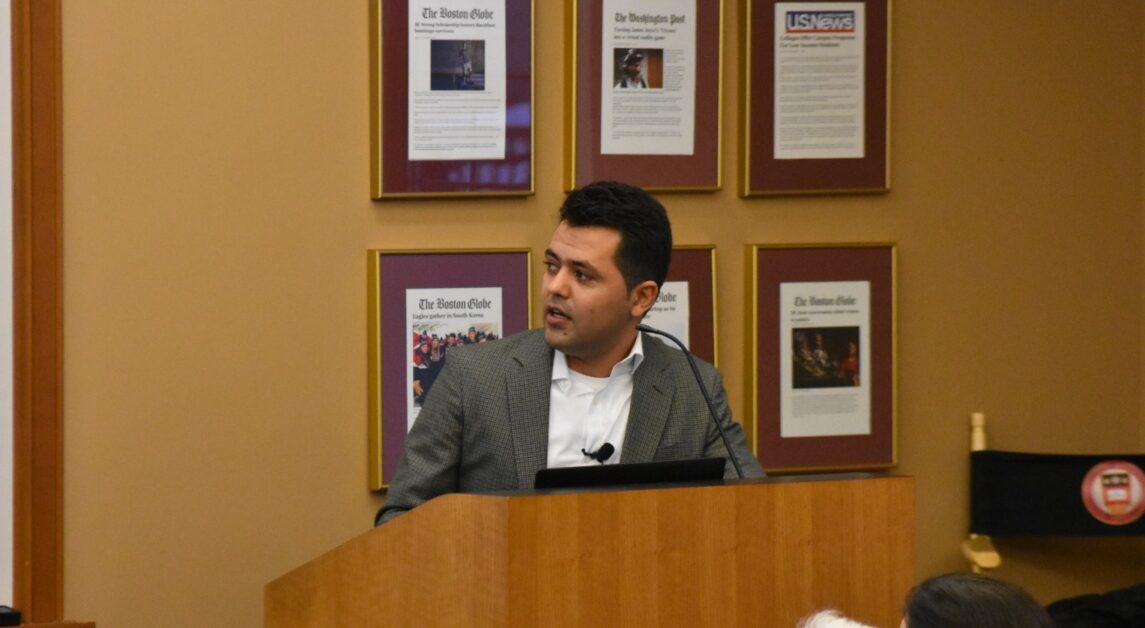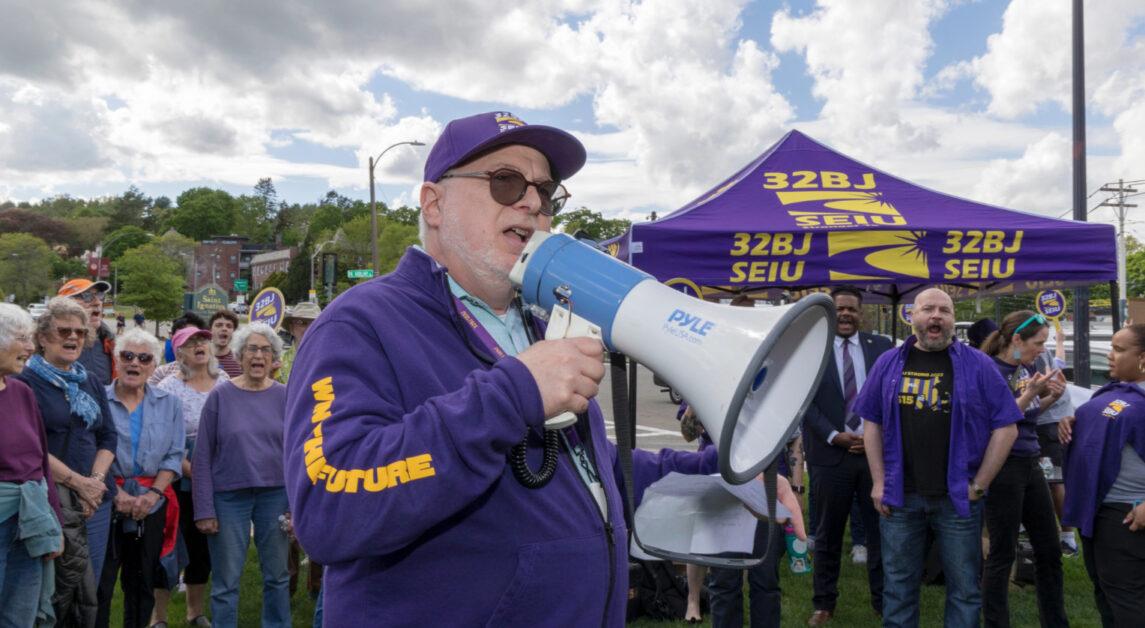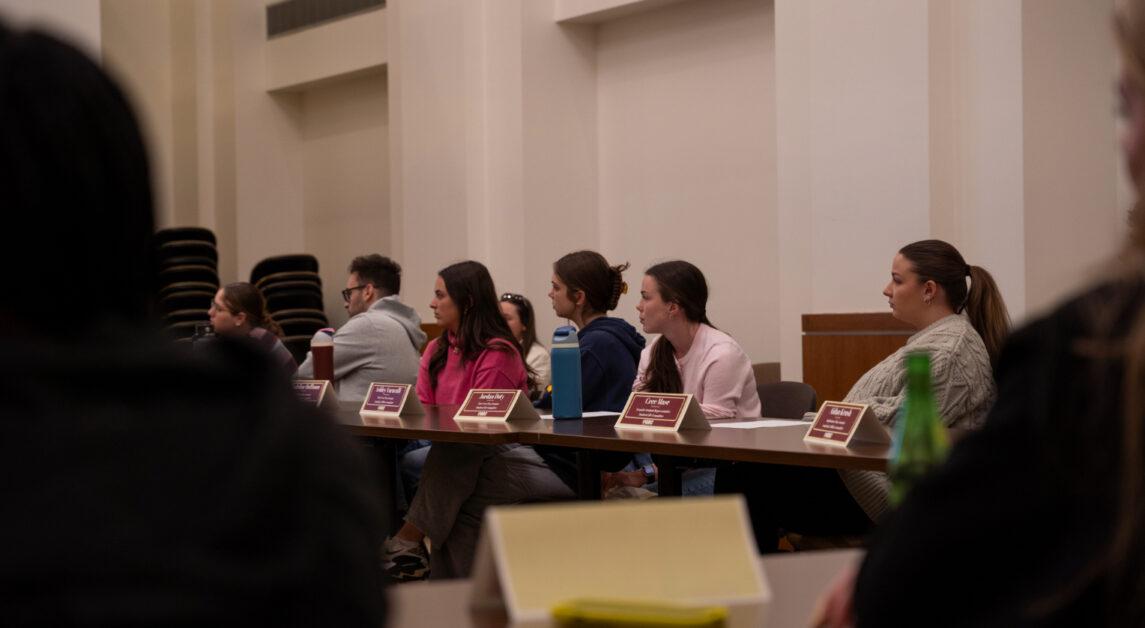“Inside, there was chaos because thousands of people were there, and of course, the military was trying hard to categorize people and were just sending them off to the planes since people kept coming,” Sharifi said.
Maryanne Loughry, part-time faculty member at the School of Social Work at BC, and Rev. James Keenan, S.J., Boston College’s vice provost for global engagement, facilitated the event, which took place in Devlin Hall.
Sharifi said that after escaping Kabul in a U.S. military plane, he found housing in the Boston area through the support of St. Ignatius Parish of Loyola and BC. He now serves as the refugee program advisor at the Research Program on Children and Adversity in the SSW.
Before evacuating, Sharifi said he lived in West Afghanistan with his family and served as a teacher for an NGO that traveled to remote provinces providing education for college-aged students.
“I was appointed as an English teacher for one of the schools that our NGO was supporting in one of the areas for displaced people,” Sharifi said.
Sharifi recalled facing Taliban “shadow governments” in the most remote villages of Afghanistan. According to Sharifi, these small groups of Taliban fighters would kidnap NGO leaders and even attack local police in order to gain influence over Afghan villages. Regardless, he said the NGO continued its services.
Sharifi said his students traveled more than two hours from their respective valleys to attend the school, which was sometimes situated in tents due to lack of infrastructure. He emphasized the rewards of teaching these children, especially the female students.
“By educating women, you educate the whole family,” Sharifi said.
By early August 2021, Sharifi said Taliban forces were rapidly conquering provincial capitals of Afghanistan.
“When the cities started falling apart, we said let’s go to Kabul because that was the last possibility,” Sharifi said.
Sharifi said that after his hometown of Herat was captured by the Taliban, he fled to Kabul with thousands of other displaced Afghans.
During the lecture, Sharifi showed the audience an email he received during his time at the airport in Kabul. The email warned people at the gates of an imminent suicide bombing by the terrorist group ISIS.
He narrowly avoided the devasting bombing, which would occur on Aug. 26 and take the lives of at least 170 Afghan civilians and 13 U.S. soldiers.
“There was one explosion that happened in one of the gates, it was called Abbey Gate,” he said. “One night before that explosion, I was sleeping in that gate.”
Sharifi said he and 27 other members of the NGO he worked with were able to secure a spot on one of the planes leaving Hamid Karzai International Airport. According to Sharifi, the flights were packed with up to 600 to 700 people per plane.
“We got lucky to find someone to negotiate between the Taliban and the people inside the airport to allow us in, since they were asking for a list,” he said. “Of course, the NGO also helped us.”
The flight took Sharifi and the passengers to Abu Dhabi for safety, where he spent 18 days. He was then transferred to a camp in Indiana, where he would spend the next three months. Sharifi said he arrived with only the clothes he was wearing and a backpack.
“All of a sudden I became a refugee myself,” Sharifi said. “Now I can understand people further with my experiences. All of a sudden you’re detached, and you’re displaced from your community and from your work that has meaning in your life.”
Sharifi said he hopes the BC community would take away the importance of helping others from listening to his story.
“Maybe you don’t see the immediate result yourself, but that extra step that you do for others, it really sometimes can have an impact on someone that you don’t even imagine,” he said. “And that is of course, from the personal level to the community level.”
Featured Image by Molly Bruns / Heights Staff







